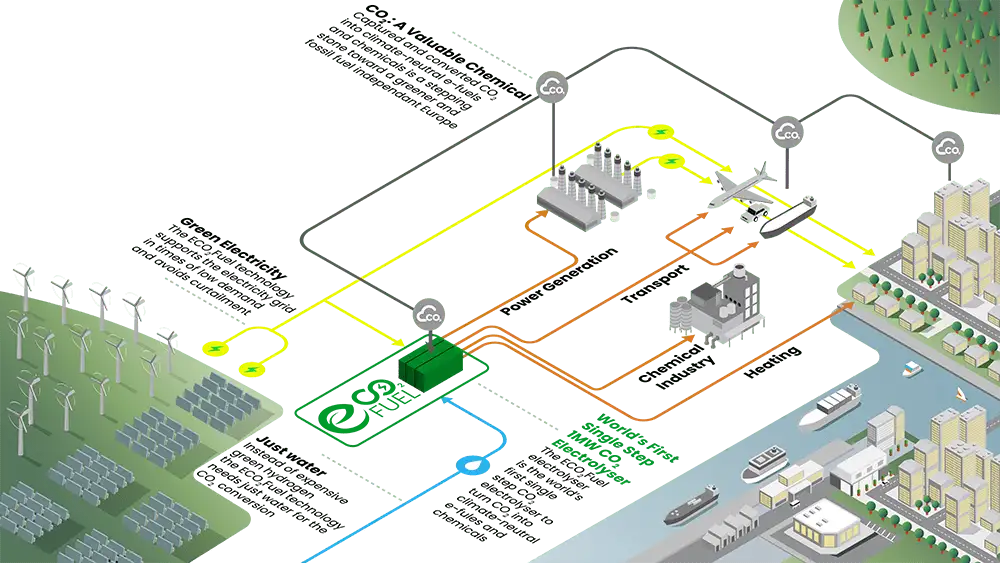ECO2Fuel tackles environmentally conscious and ingenious approaches to intricate problems. Carbon, beyond being a fundamental aspect of life, is the driving force behind a myriad of products, ranging from the fuel that powers vehicles to the resilient soles of sneakers, from electronic gadgets to essential construction materials and components for electric vehicles. However, the prevailing issue at hand is the heavy reliance on fossil fuels as the principal carbon reservoir, leading to CO2 emissions and hastening climate alterations. The ECO2Fuel initiative aims to revolutionise this status quo by sourcing carbon from CO2 rather than fossil fuels.
ECO2Fuel is an EU project under Horizon2020 aiming to design, manufacture, operate, and validate the worldwide first low-temperature 1MW direct, electrochemical CO2 conversion system to produce economic and sustainable e-fuels and chemicals. By replacing fossil carbon in fuels and chemicals with recycled carbon from CO2, ECO2Fuel can remove emissions from thousands of essential items, set new standards for the industry, and prevent further CO2 emissions.

How is META Group contributing
In ECO2Fuel, 15 international partners from the chemical, energy, hydrogen, mechanical engineering and automotive industry, and several research institutions set out to contribute to this goal by building the worldwide first CO2 conversion system to convert 742 tons of CO2 per year into economic and sustainable liquid e-fuels and chemicals.
META Group leads the Communication, Dissemination, and Exploitation strategies for ECO2FUEL, aiming to effectively share project outcomes and maximise its impact. This involves using different online (website, social media, newsletter) and offline (workshops, study-visits) channels throughout the project’s duration. The focus is on continuous communication to pave the way for future technology commercialisation.
Some key objectives include actively engaging stakeholders and the public, sharing knowledge with target groups, establishing a Community of Practice, fostering collaboration with similar projects, and preparing roadmaps for sustainable results. Exploitation activities include engaging partners, developing models and plans for key outcomes, leveraging industrial partners for patents and IP protection, and connecting with potential users and investors to advance technology readiness and usage.




